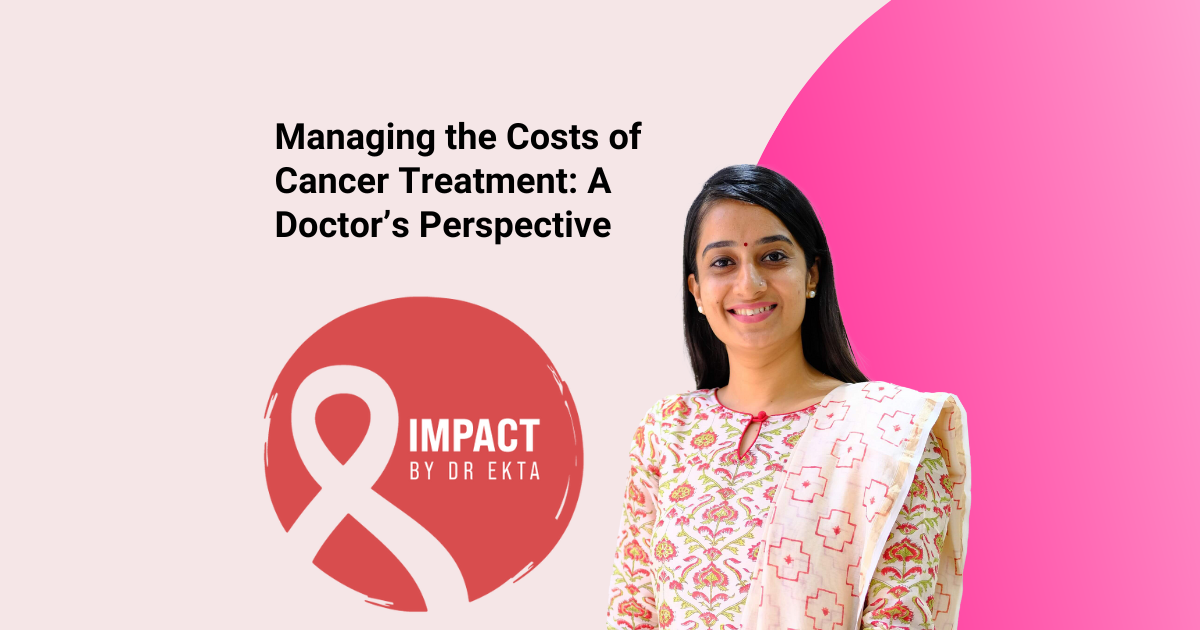One of the most frequent concerns I encounter from my patients and their families is the financial burden associated with cancer treatment. A cancer diagnosis is life-changing, not only due to the physical and emotional toll but also because of the financial strain that often accompanies it. Over the years, I have seen firsthand how the cost of treatment can impact decision-making, adherence to therapies, and overall well-being. My aim here is to provide guidance on managing these costs effectively, empowering patients and their families to focus on what truly matters, recovery and quality of life.
Understanding the Costs of Cancer Treatment
When we talk about cancer treatment, it’s essential to understand that expenses can vary widely depending on several factors:
- Type of cancer: Different types of cancer require different treatment modalities, such as surgery, chemotherapy, radiation, or immunotherapy.
- Stage of cancer: Advanced stages may necessitate more intensive and prolonged treatments.
- Hospital and location: Costs can vary between institutions and regions.
Beyond direct medical costs, patients must also consider indirect expenses like travel, accommodation, and loss of income. This comprehensive view often reveals the multifaceted financial challenges that cancer patients face.
Insurance: The First Line of Defense
One of the most effective ways to manage the cost of cancer treatment is through health insurance. If you have insurance, it’s crucial to thoroughly understand what your policy covers. This includes consultations, diagnostic tests, medications, hospital stays, and follow-up care.
For patients without insurance, I encourage exploring government schemes, non-profit organizations, or employer-provided insurance programs. In India, for example, schemes like the Ayushman Bharat program provide financial assistance to eligible families for cancer treatment.
Communication Is Key
I often remind my patients that clear communication with their healthcare team can go a long way in managing costs. As your oncologist, I can provide insights into treatment plans, discuss alternatives, and prioritize interventions based on medical necessity and financial feasibility.
For instance, generic medications are often as effective as branded ones and come at a fraction of the cost. Similarly, scheduling tests judiciously can help avoid unnecessary expenses.
Seeking Financial Assistance
Many organizations offer financial support specifically for cancer treatment. These include non-profits, community groups, and even pharmaceutical companies that provide subsidized medications or patient assistance programs.
In my practice, I maintain a list of such resources and always encourage patients to ask about them. Remember, seeking help is not a sign of weakness; it is a step toward ensuring you receive the care you need.
Managing Indirect Costs
While the primary focus is often on direct medical expenses, managing indirect costs is equally important. Travel and accommodation near cancer centers can be costly, especially for patients coming from rural areas.
To address this, I recommend patients inquire about lodging facilities provided by hospitals or non-profits. Additionally, teleconsultations are becoming increasingly popular and can help reduce travel-related expenses.
Planning Ahead
For those undergoing cancer treatment, financial planning is essential. I encourage patients and their families to:
- Create a budget: Outline expected expenses, including treatment, medications, and follow-ups.
- Explore loans or savings plans: Many banks offer low-interest loans for medical emergencies, including cancer care.
- Involve family and friends: Crowdfunding has emerged as a viable option, with many platforms specifically designed for medical fundraising.
The Role of Early Detection
One of the most effective ways to reduce the cost of cancer treatment is through early detection. Cancers diagnosed in their early stages are often less complex and expensive to treat. This is why I always advocate for regular screenings and prompt medical attention for any unusual symptoms.
For example, breast cancer detected at stage one may require only surgery and a short course of radiation, whereas advanced stages might involve chemotherapy, targeted therapies, and prolonged hospital stays.
Emotional and Mental Support
Dealing with the financial aspects of cancer treatment can be overwhelming. Stress and anxiety about money can sometimes take a toll on a patient’s recovery. This is why I emphasize the importance of emotional and mental well-being.
Support groups, counseling, and open conversations with loved ones can provide relief. As your oncologist, I also strive to create a safe space where these concerns can be addressed without judgment.
Embracing a Holistic Approach
Managing the costs of cancer treatment is not just about cutting expenses—it’s about finding a balance that ensures the best possible outcomes. I firmly believe that every patient deserves access to quality care, regardless of their financial situation.
By working together patients, families, healthcare providers, and support organizations—we can create solutions that alleviate financial stress while maintaining the integrity of the treatment plan.
My Final Thoughts
Every cancer journey is unique, and so are the challenges associated with it. Managing the costs of cancer treatment requires determination, creativity, and a willingness to seek help. As an oncologist, I am here not just to treat the disease but also to guide and support my patients through the complexities of their journey.

